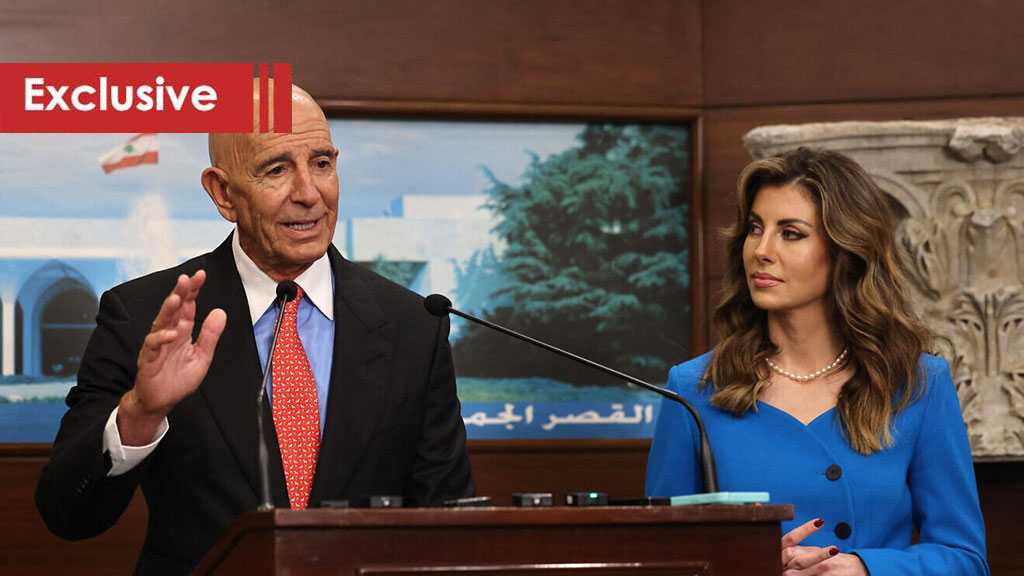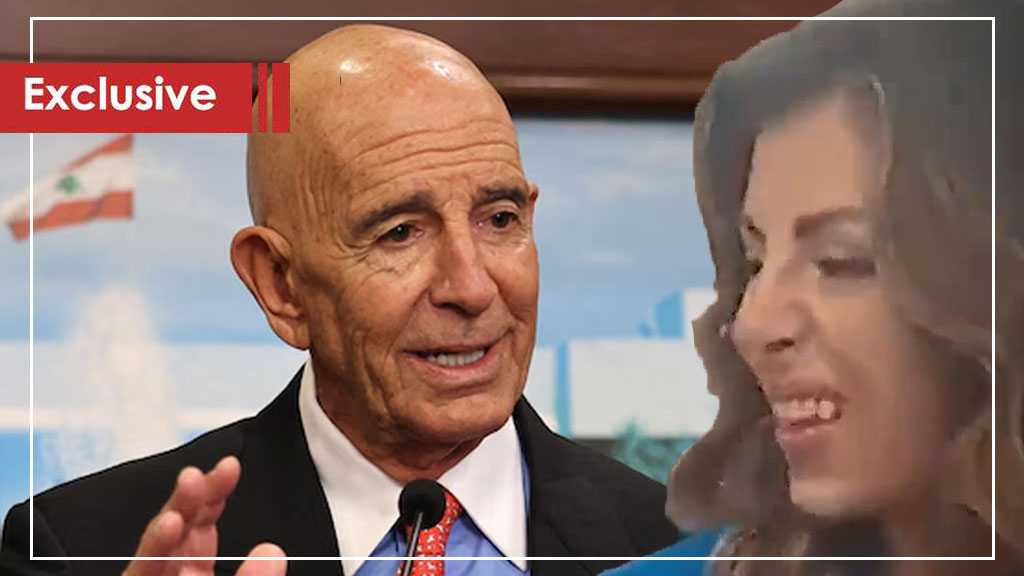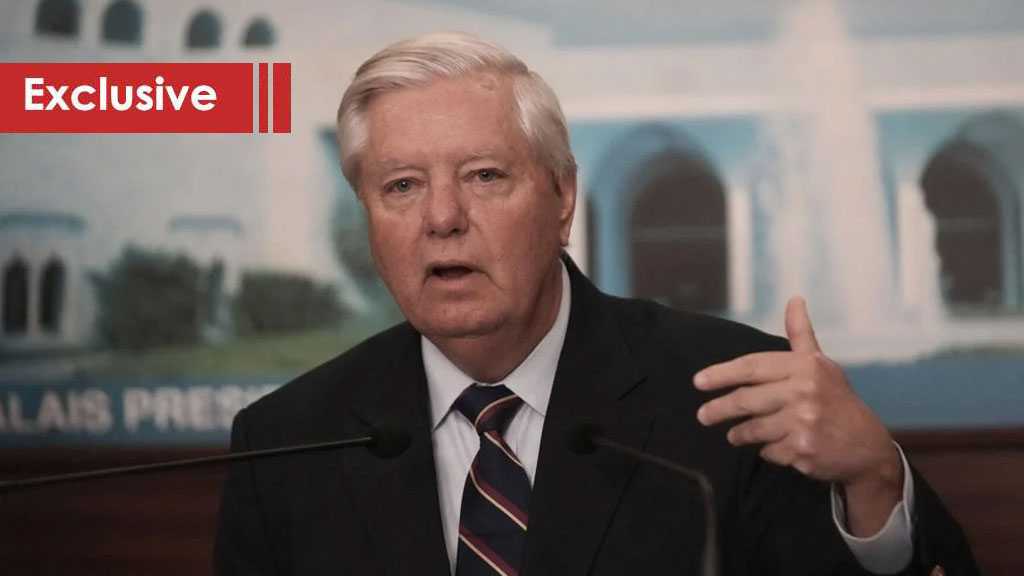Tom Barrack’s “Animalistic” Remark and Lebanon’s Crisis of Dignity

By Mohamad Hammoud
Lebanon – The billionaire envoy’s contempt was insulting—but the real humiliation lies in how some Lebanese excused it.
Tom Barrack, the wealthy American investor and political insider, traces his roots directly to Lebanon. His grandparents left Zahle in the Beqaa Valley for California at the turn of the twentieth century, building a modest life far from their homeland. One might expect such a man to speak of Lebanon with affection or respect. Instead, Barrack has consistently revealed disdain for the country of his ancestors.
During a visit to Beirut as a US envoy, he faced reporters pressing for answers—as journalists do everywhere—and snapped:
“The moment this starts becoming chaotic—like animalistic—we’re gone. Act civilized, act kind, act tolerant, because this is the problem with what’s happening in the region”. [Associated Press]
The insult was unambiguous. Major American outlets, including AP, CBS News, The Guardian and Al Jazeera, reported it word for word. Barrack, grandson of Lebanese immigrants who once fled in search of dignity, had just dismissed Lebanon’s journalists as less than human.
A Colonial Mindset in Modern Garb
This was not merely a gaffe. It echoed the rhetoric of colonial commissioners who saw Arabs as unruly peoples in need of discipline. Press conferences are loud everywhere—anyone who has watched American reporters shouting in Washington knows this. Yet Barrack chose to see Lebanese journalists not as professionals doing their jobs, but as “animalistic.” His contempt was for Lebanon itself, not the practice of journalism.
It was not the first time. Barrack once warned that Lebanon could be absorbed into “Al-Sham”, effectively erasing the country’s sovereignty. These are not slips of the tongue; they reflect how he views Lebanon: chaotic, fragile and undeserving of equal respect.
The Silence That Followed
The greater shame was not Barrack’s arrogance but the Lebanese response. Within hours, a handful of journalists, party spokesmen, and Lebanese voices, stripped of dignity and quick to justify, rushed to television studios and social media to insist that he had been misquoted, “taken out of context,” or misunderstood. This frantic denial came despite major American outlets having already confirmed his exact words.
In that eagerness to excuse him, they revealed a wound deeper than any single insult: a reflexive willingness to bow before an American voice and even apologize for being offended. Barrack’s contempt stung, but the spectacle of Lebanese submissiveness compounded the injury. It exposed how far a segment of the country’s elite has drifted from the fundamental dignity of self-respect.
This instinct to excuse is not a new phenomenon. When American officials land in Beirut, they are too often treated not as envoys but as masters. They dictate policies on Hezbollah, the economy, and even Lebanon’s borders with “Israel”. The pattern repeats itself: deference, silence, and obedience in the face of condescension.
Barrack’s Own Shadows
Barrack is hardly a model of credibility. A confidant and fundraiser for Donald Trump, he later faced charges of acting as an unregistered foreign agent for the United Arab Emirates. Though acquitted, the trial exposed the scale of his dealings and the ease with which his influence could be bought. For such a man to lecture Lebanese reporters on civility is not only insulting—it is absurd.
A Crisis of Dignity
Lebanon has endured invasions, civil war, and economic collapse. But the deeper wound is moral: a segment of its elite has surrendered dignity in exchange for foreign approval. They excuse insults, accept dictates, and even defend those who demean them. When Barrack labeled Lebanese journalists “animalistic,” the shame should have been his alone. Instead, it became a national humiliation because of those who rushed to minimize his words.
This is the real crisis: not one man’s arrogance, but a culture of submission. As long as Lebanese leaders measure legitimacy by Washington’s approval and treat “Israel” as untouchable, Lebanon will remain vulnerable—not only to outside pressure, but to humiliation delivered by its own sons.
Reclaiming Sovereignty
Dignity is not negotiable. It does not require American validation or the approval of expatriate heirs who made fortunes abroad. It requires the courage to reject humiliation when it comes, even from powerful men. It requires a press corps that defends its freedom instead of apologizing for it. And it needs leaders who treat sovereignty not as a bargaining chip but as the foundation of national life.
Barrack’s insult should be remembered not as an isolated outburst, but as a mirror—reflecting both the contempt of outsiders and the weakness of those within who prefer to excuse it. His words expose more than personal arrogance: they reveal the wider posture of US policy, which for decades has treated Lebanon as a client to be disciplined and “Israel” as the unquestionable master of the region.
That is the true legacy of Barrack’s “animalistic” remark. The insult itself was fleeting. The humiliation of accepting it will endure—unless Lebanon rediscovers the courage to defend its dignity.



